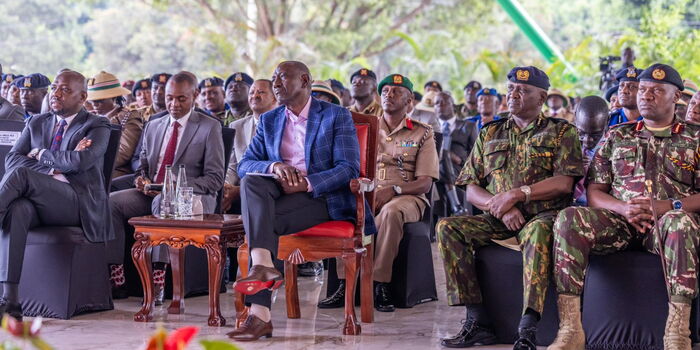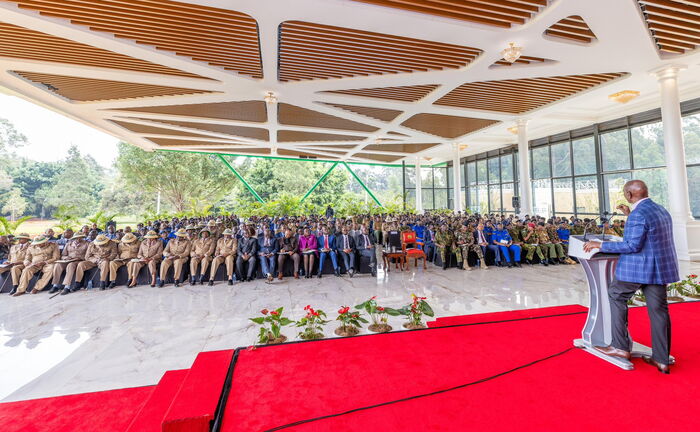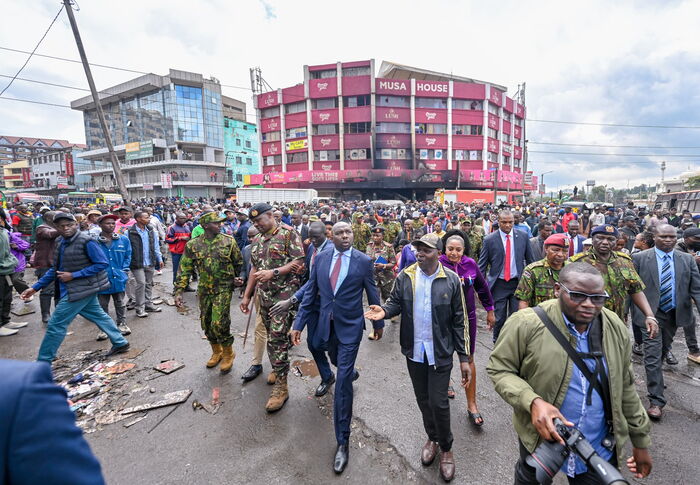President William Ruto has ordered an aggressive nationwide crackdown on protesters who assaulted police officers during the violent June 25 demonstrations.
Speaking from State House Nairobi during a high-level meeting with regional and county security leaders, Ruto condemned the attacks on law enforcement and issued a stern warning to what he called “criminal mobs.”
“We cannot have a country where police officers are fleeing for their lives,” the President stated. “If a policeman’s life is in danger, then how can our families be safe?”
Ruto said that protecting law enforcement was key to maintaining national order and development. He announced that anyone involved in the attacks on police or destruction of public property during the protests would be arrested and prosecuted without delay.
“This trend must change,” he declared. “We will stand by every man and woman in uniform and protect them as they serve the country.”
Interior Cabinet Secretary Kipchumba Murkomen had earlier echoed similar sentiments, labeling the protests a politically driven attempt to destabilize the country. He not only defended the police but also gave a controversial shoot-to-kill order aimed at those attacking police stations.
“This gun you’ve been given here is not for decoration,” Murkomen told officers. “If someone comes to attack you or steal your weapon, defend yourself. Save your life first.”
Murkomen’s directive has triggered national debate, with some viewing it as necessary for law and order, while others express concern about potential human rights violations.
According to Interior Ministry data, the June 25 protests left 300 police officers and 100 civilians injured, with several police stations attacked or burned. Murkomen warned that these actions were part of a deeper plot to destabilize the nation.
“There was a particular pattern where police stations were targeted,” he noted. “I suspect the burning of stations was meant to send a signal by coup plotters.”
As the country reels from the aftermath of the protests, President Ruto’s administration is moving fast to reassert control. The crackdown signals a tougher stance on political unrest, but also raises important questions about freedom of assembly and police accountability.
Observers now wait to see how the government balances security enforcement with civil rights protections in a politically charged climate.
Ruto’s directive marks a critical moment in Kenya’s response to escalating protest violence. While the state insists on restoring order and protecting police, citizens and rights groups will be watching closely to ensure justice is not replaced by excessive force.






